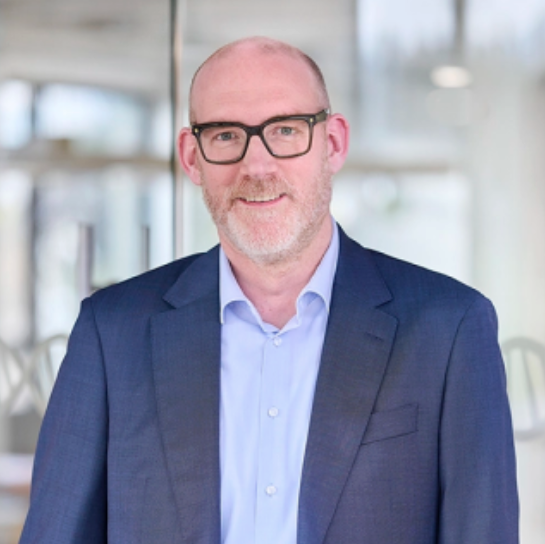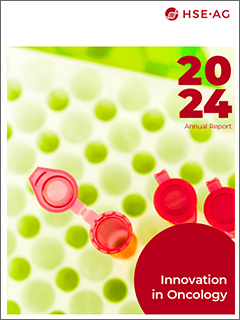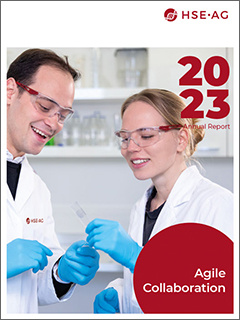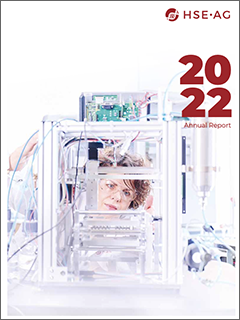
Sample quality determines the success of the diagnosis
HSE•AG possesses extensive and profound expertise in handling a wide variety of medical and biological samples, as well as the full spectrum of processing technologies. The engineers are well-versed in the specific requirements of various applications, ranging from multiplex PCR and NGS libraries to proteome analyses and tissue staining assays, and even the emerging spatial biology platforms.
“The reliable automation of nucleic acid purification for analytical and diagnostic applications is practically the DNA of HSE•AG,” emphasizes Felix Westhoff, Head of Business Unit - Engineering Services at HSE•AG. CEO Michael Collasius and CTO Konstantin Lutze were responsible for launching the BioRobot 9600, the first device to automate the purification of nucleic acid samples in microtiter plates, at assay specialist Qiagen back in 1996.
Experience with all kinds of samples and technologies
Today, HSE•AG has a uniquely broad and deep experience with the whole range of sample preparation technologies: from centrifuge-column-based systems and procedures based on magnetic or non-magnetic beads, to the optimal distribution of tissue sections or cell smears on slides, to flowthrough methods performed in cartridges and cytometry procedures.
Which preparation technology is optimal in each individual case depends, among other things, on the type of sample and the specific requirements of the assay.
Depending on whether multiplex PCR is to be performed, a library is to be prepared for an NGS method, a proteome is to be analyzed, individual cells are to be assessed, or tissue material is to be prepared for spatial analysis of the molecular processes in the cells, other factors are decisive.“
However, the basic principle always remains the same, regardless of whether whole blood, saliva, swabs or tissue sections are available as starting material,” clarifies Westhoff.
The substances to be examined are extracted or isolated, then the samples are chemically prepared and finally analyzed.
The reliable automation of nucleic acid purification for analytical and diagnostic applications is the DNA of HSE•AG.
Quickly translating established technologies into new areas
Thanks to its extensive experience, HSE•AG is able to efficiently transfer tried-and-tested processes from one area to another, as Westhoff explains: “For example, we were able to adapt an established centrifuge column application from nucleic acid processing to the specific requirements of protein samples. By not having to develop the process steps from scratch, we were able to provide our customer with a reliably functioning system much more quickly.”
According to Westhoff, the current trend is towards cartridges. Assay manufacturers want to get as close as possible to the patient with their tests. For this purpose, the sample is already placed in the cartridge when it is taken from the patient – ideally as self-service – and the automated analysis is then carried out in the cartridge. The reaction steps of the assay are then carried out using flow-through technology.
The consistency achieved by the cartridges reduces the need for highly qualified personnel on the user side. Moreover, hardly any additional consumables such as tips, reaction vessels or plates are required for the analysis.
“For us, automation always means increasing efficiency,” emphasizes Westhoff: “Faster and greater sample throughput is the basis. We achieve additional added value when material consumption is also reduced and the qualification requirements for operating personnel are lowered thanks to ease of operation.”

About Felix Westhoff
Felix Westhoff is Head of Business Unit - Engineering Services at HSE•AG, where he is part of the management team and plays a key role in strategic service development, project leadership, and key account management.
He has more than 20 years of experience in the medical technology and diagnostics industry.
Prior to joining HSE•AG, he held senior positions at Medtronic, Biotronik, and eucatech AG, where he led international product development projects for vascular implants, catheter systems, and automated diagnostic platforms.
Felix holds a Degree in Engineering from FH Aachen – University of Applied Sciences, Germany.

Recent Annual Reports



